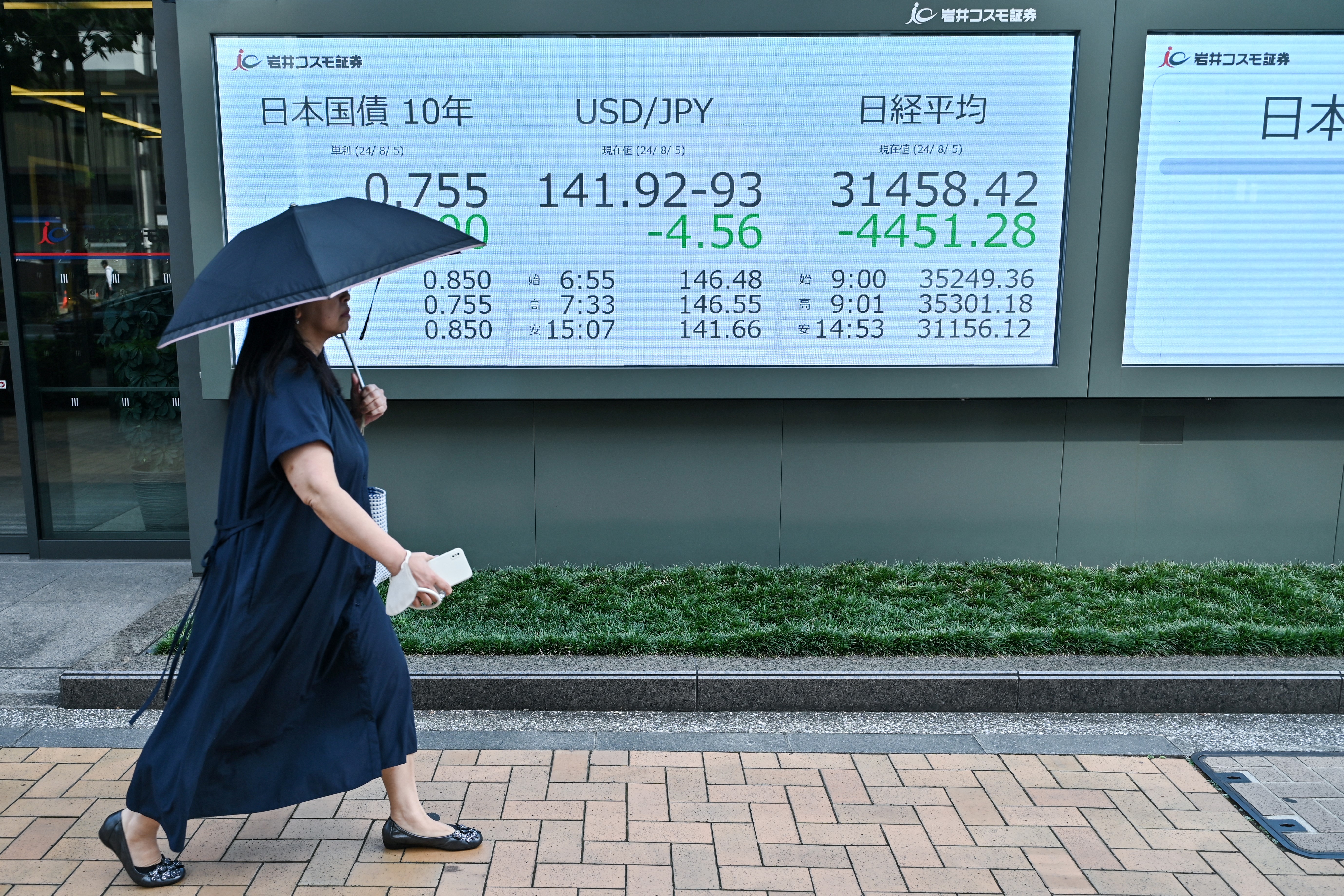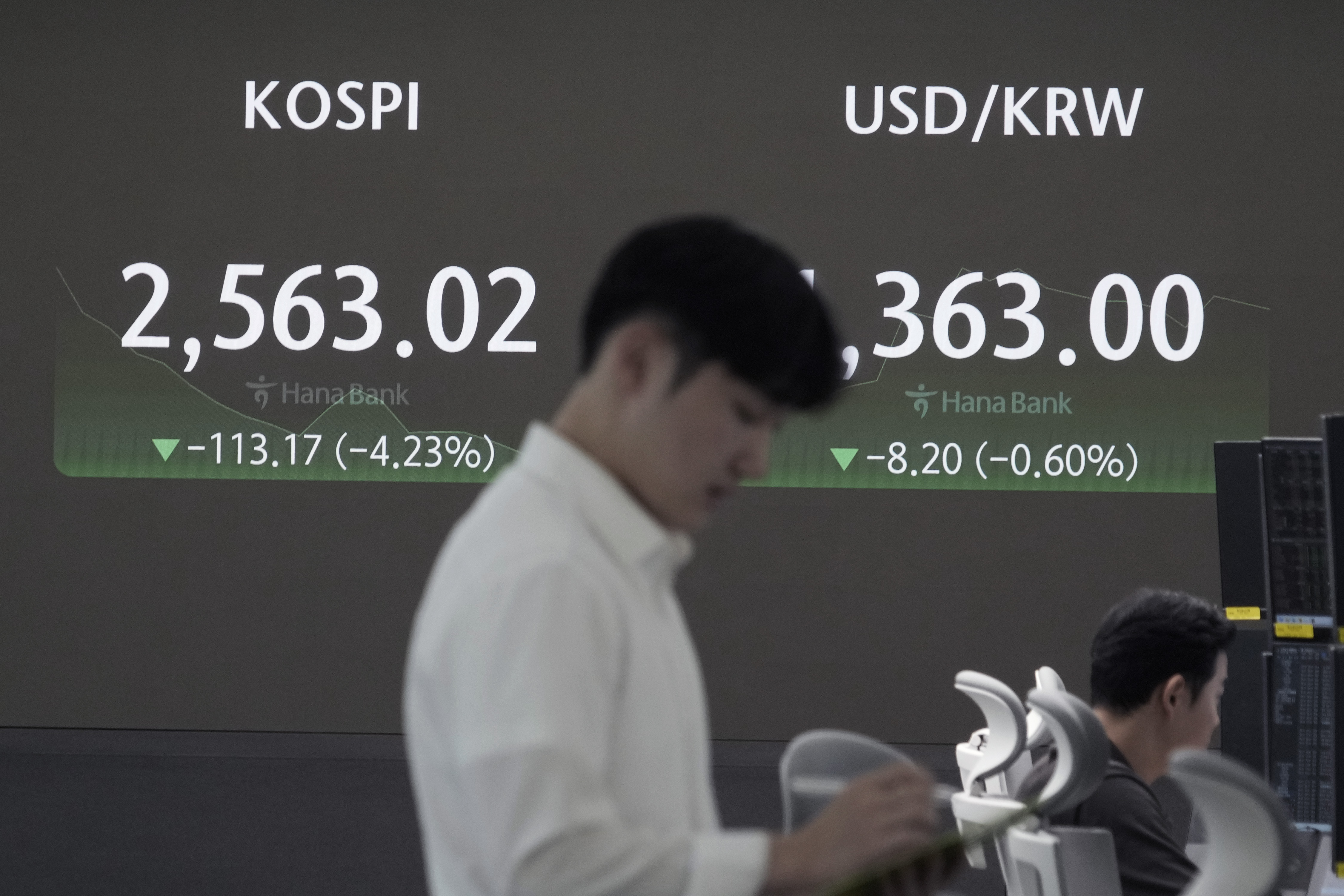
TOKYO / SEOUL - Japan stocks closed sharply lower on Monday, with the benchmark Nikkei stock index sinking more than 12 percent, the worst intraday losses in history, with trading curbs triggered in Tokyo and Seoul as risk appetite dampened across global financial markets on US recession fears.
The 225-issue Nikkei Stock Average plunged to its lowest level this year by ending the day at 31,458.42, down 4,451.28 points, or 12.40 percent from Friday, refreshing its record intraday drop which was previously seen at 3,836 points in the "Black Monday" crash in 1987.
The broader TOPIX index, meanwhile, also ended significantly lower by finishing 310.45 points, or 12.23 percent, lower at 2,227.15.
Futures trading for both benchmark indices were suspended at one point over circuit breakers.
READ MORE: Nikkei plummets over 7% amid growing US recession fears
On the top-tier Prime Market, most stocks declined, with bank, insurance and securities house shares leading the losses.
Market watchers here noted the sharp declines came amid a broad "panic" sell-offs over growing concerns over a potential recession in the United States and a strengthening yen.
The dollar briefly dropped to around a seven-month low in the upper 144 yen zone in Tokyo amid speculation that the Federal Reserve will cut interest rates significantly in September following recent weak economic data.
In the Tokyo forex market, the Japanese yen on Monday strengthened to a seven-month-high, briefly reaching the upper 142-yen level against the US dollar, which further dragged export-related issues.

Sell-offs of technology shares were also prevailing in the market amid heightened risk-off sentiment after the tech-heavy Nasdaq and a key semiconductor index fell sharply on Friday, according to analysts.
Citing the Monday meltdown, some analysts here pointed out that Tokyo seems to have been suffering a worse-than-expected spillover from US recession fears compared to other markets.
In Seoul, the stock market marked its worst session since the global financial crisis of 2008, with trading curbs activated for the first time in four years, as tech stocks slumped.
The benchmark KOSPI stock index ended the session down 8.8 percent at 2,441.55, its biggest percentage fall since Oct 24, 2008.
ALSO READ: US unemployment rate ticks up, strengthening case for rate cut
During the session, the KOSPI fell as much as 10.8 percent, triggering circuit breakers for the first time since March 2020, which are trading curbs activated when the index falls or rises more than 8 percent and halts trading of stocks and derivatives for 20 minutes.
The KOSPI was down more than 14 percent from a six-month peak of 2,860.42 hit in July.
Chip heavyweights Samsung Electronics and SK Hynix lost 10.3 percent and 9.9 percent, respectively, tracking heavy losses on the Philadelphia Semiconductor Index.
"The market has entered territory of extreme fear amid a slump in US big tech stocks, worries about a slowing US economy and sharp declines in Asian markets," said Kim Dae-jun, analyst, Korea Investment Securities.


